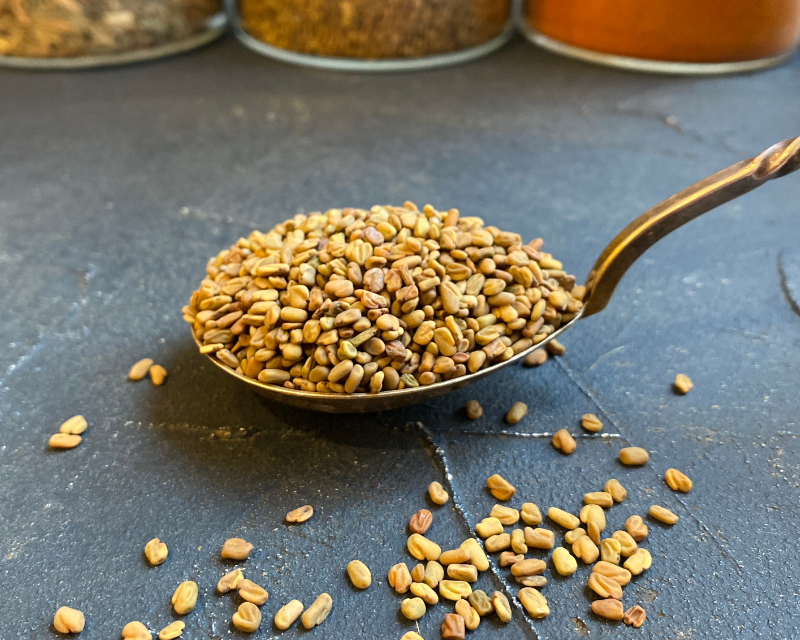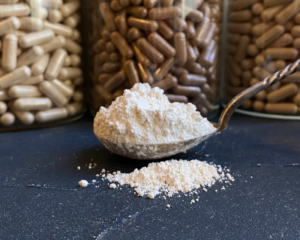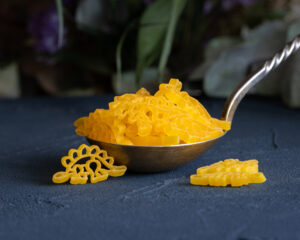The fenugreek Trigonella foenum graecum belongs to the Fabaceae family. It is one of the most common Indian spices, particularly recognised for its culinary, medicinal and aromatic properties. Fenugreek or methi is recognised for its health-promoting properties, such as anti-inflammatory, anti-diabetic and anti-cancer effects. The chemical constituents of fenugreek consist mainly of steroids, alkaloids, flavonoids, fibres, vitamins and fatty acids. The gel-forming property of fenugreek helps to prevent the development of ulcers, as has been studied for some anti-ulcer drugs such as omeprazole.
Fenugreek has long been known in Ayurvedic and Traditional Chinese Medicine and has been used for many indications, including to stimulate digestion and as a general tonic to improve metabolism and health.
In Ayurveda, fenugreek is used to improve digestion, support elimination and calm the stomach. Its warming properties have been used to balance moisture in the lungs. Some studies confirm its possible use as a natural lactation remedy, and in ancient times it was prescribed as an aphrodisiac. Fenugreek was even added to poultices to help soothe aching, stiff or swollen joints. Many clinical trials have been conducted on the ability of fenugreek to reduce excess cholesterol and improve blood sugar levels in diabetic patients.
Consumption
Fenugreek seeds are used both whole and ground. Fenugreek works well with other spices such as cummin seeds, coriander seeds, fennel seeds and ginger.
Grind fenugreek seeds into a powder and use them in vegetable and legume dishes and snacks. It has a bitter taste, so it is important not to overheat fenugreek seeds and to add them to dishes at the end of cooking. Their sweet aroma and flavour is said to be reminiscent of maple syrup, caramel and hay.
Fenugreek seeds can be sprouted and used in salads.
Make a digestive tea:
Soak 1 teaspoon fenugreek seeds in a cup of hot water for 5-10 minutes.
Its warming nature and bitter taste make it an excellent appetite stimulant and digestive aid by strengthening the central digestive ‘fire’. The seeds can be eaten after drinking the tea, and fenugreek can help to protect the body from absorbing cholesterol.
Sources:
https://www.sciencedirect.com
https://www.banyanbotanicals.com
NOTE. The information contained herein should not be construed as a recommendation for treatment or other health issues. We encourage you to make personal decisions about your personal health, taking into account a wide range of sources of information.


